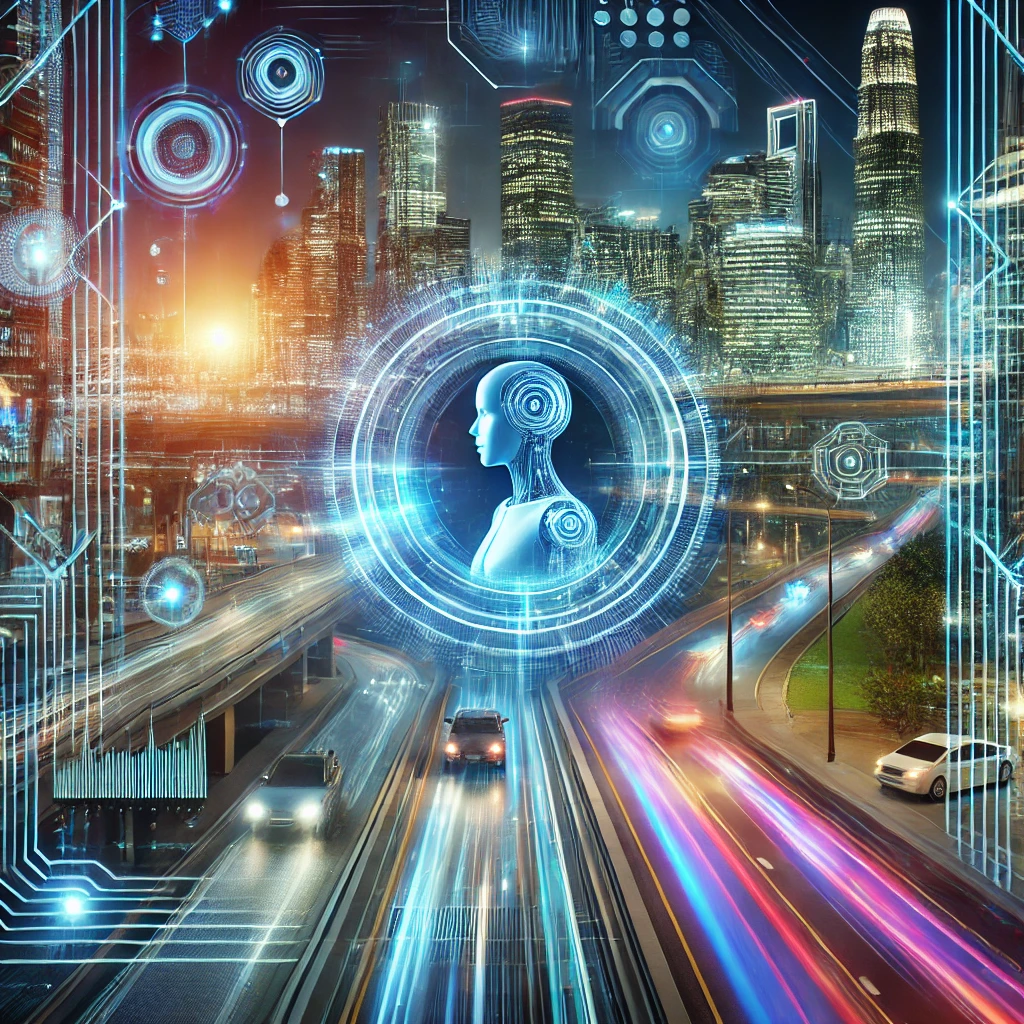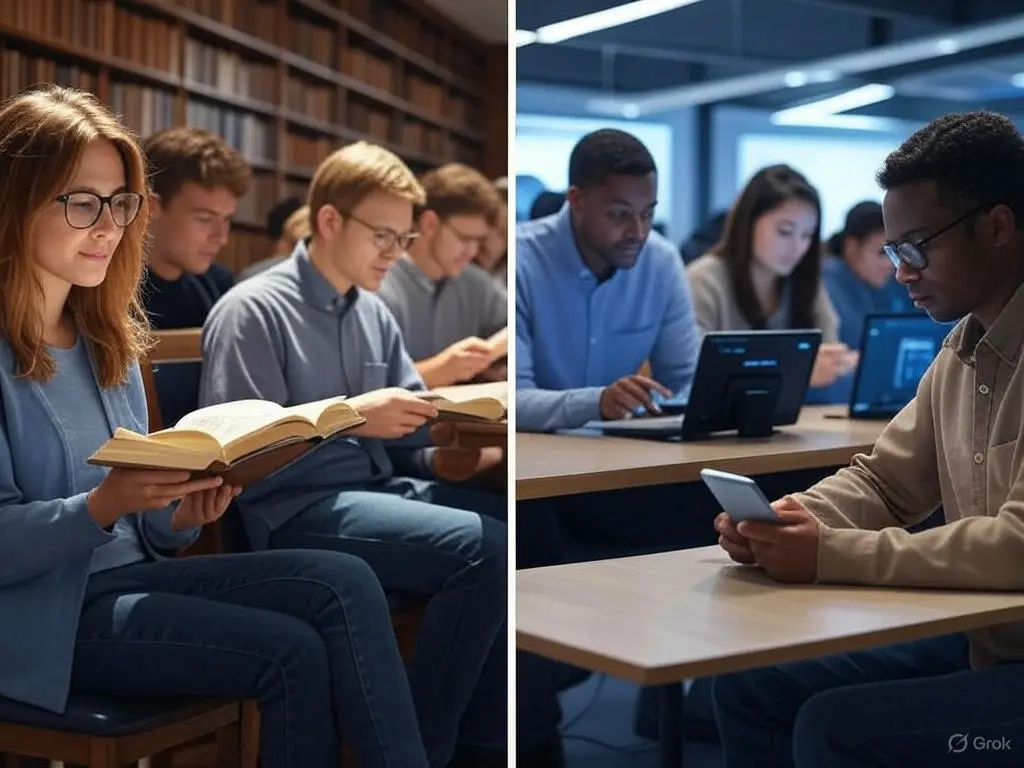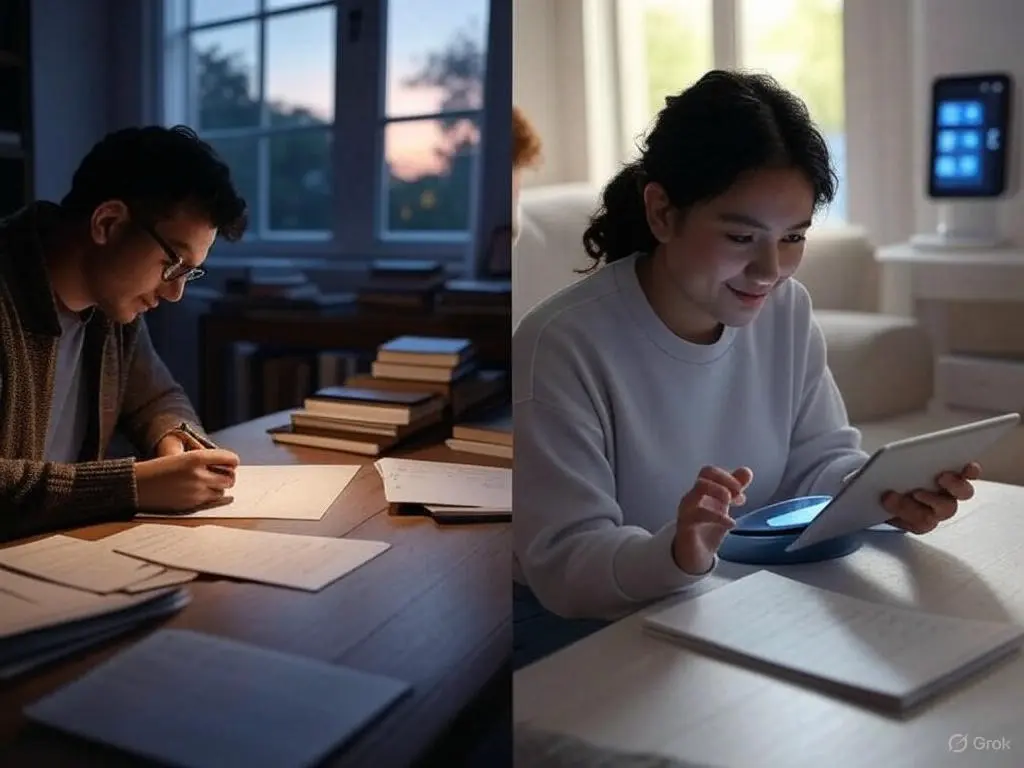Discover how human life has changed after artificial intelligence entered our world. From work and daily routines to entertainment and healthcare, AI has reshaped our existence in ways we never imagined. Explore the benefits, challenges, and future possibilities in this easy-to-read guide.
From Sci-Fi to Reality: How Human Life Has Changed After Artificial Intelligence
Have you ever wondered how much easier life has become thanks to technology? One of the biggest game-changers in recent years is artificial intelligence, or AI for short. AI is like a super-smart computer that can learn, think, and make decisions almost like a human. From helping doctors diagnose diseases to recommending your next favorite movie, AI is everywhere. In this blog post, we’ll dive into how human life has changed after artificial intelligence became a part of our world. Get ready to see the amazing ways AI has transformed work, daily routines, communication, entertainment, healthcare, and more!
Work and Employment
One major way how human life has changed after artificial intelligence is in the workplace. Remember when robots were just in movies? Now, they’re in factories, helping to build cars and package products faster than ever. AI takes over boring, repetitive tasks so people can focus on creative and big-picture jobs. For example, in customer service, AI chatbots answer simple questions, letting human agents tackle tougher problems.
But it’s not all smooth sailing. Some worry that AI might take away jobs, leaving people unemployed. The good news? Experts believe AI will also create new jobs, especially in tech fields like AI programming and data analysis. A World Economic Forum report predicts AI could create 97 million new jobs by 2025. So, while some roles may fade, others will pop up to keep the workforce buzzing.
Daily Life and Convenience
In our daily routines, how human life has changed after artificial intelligence is clear through added convenience. Smart homes are a big win—devices like Amazon’s Alexa or Google Home let you control lights, thermostats, and even your coffee maker with your voice. Virtual assistants remind you of meetings, play music, or order groceries online.
AI also makes getting around easier. Navigation apps use AI to predict traffic and find the fastest routes. Picture this: your fridge notices you’re out of milk and adds it to your shopping list automatically. That’s how human life has changed after artificial intelligence—small tasks are simpler, giving us more time for what matters.
Communication and Social Interaction
AI has shaken up how we connect with others too. Social media platforms use AI to suggest friends, show posts you’ll like, and spot bad behavior. Chatbots on websites answer questions any time of day, making customer service quick and easy. AI translation tools, like Google Translate, let people chat across languages without a hitch.
But there’s a flip side. Some say AI makes things less personal—like texting a bot instead of a friend. Plus, fake news can spread fast online with AI’s help. Still, how human life has changed after artificial intelligence in communication is huge, making the world feel smaller and more connected.
Entertainment and Leisure
Entertainment is another area where how human life has changed after artificial intelligence shines. Streaming services like Netflix use AI to pick shows and movies just for you. In gaming, AI builds smarter opponents, making playtime more fun and challenging. Even music gets an AI boost—tools can create new songs or help artists experiment with sounds.
Virtual reality (VR) and augmented reality (AR), powered by AI, take fun to the next level. You can step into a game or watch a movie like you’re really there. AI makes entertainment personal and exciting, showing how human life has changed after artificial intelligence in cool, creative ways.
Healthcare and Well-being
Healthcare is one of the most exciting places where how human life has changed after artificial intelligence is making a difference. AI can scan medical images to spot diseases like cancer faster and more accurately than doctors. It also predicts how patients will do and suggests custom treatment plans. Wearable gadgets, like smartwatches, use AI to track your heart rate, sleep, and stress, helping you stay healthy.
A Harvard Business Review article says AI could save lives and cut healthcare costs. From catching problems early to keeping us fit, AI is changing human life for the better in big ways.
Challenges and Concerns
AI isn’t perfect, though. How human life has changed after artificial intelligence also includes some worries. Privacy is a big one—AI often collects personal info to work, which can feel creepy. There’s also bias: if AI learns from bad data, it might make unfair choices. Job loss is another concern, as machines take over tasks humans used to do.
Ethical questions pop up too. Should AI decide things like who gets parole or how weapons are used? These challenges remind us to use AI carefully and make sure it helps everyone fairly.
Conclusion
So, how human life has changed after artificial intelligence is a mix of awesome progress and tricky challenges. AI makes work smarter, daily life easier, connections stronger, fun more personal, and health better. But it also brings up issues like privacy, jobs, and fairness that we need to tackle. As AI grows, we get to shape how it changes our lives next. The future’s wide open—let’s make it great!
FAQs
What is artificial intelligence?
Artificial intelligence, or AI, is tech that lets machines learn, think, and act a bit like humans. It’s behind things like smart assistants and self-driving cars.
How has AI changed the job market?
AI automates repetitive jobs, which can cut some roles but also creates new ones in tech and innovation—think millions of new opportunities by 2025!
Is AI making our lives easier or more complicated?
Mostly easier! AI handles tasks and personalizes experiences, but it can complicate things with privacy worries or tech overload.
What are the ethical concerns surrounding AI?
Big ones are privacy (too much data collection), bias (unfair decisions), and misuse (like in surveillance or war). We need rules to keep AI fair.
How can I prepare for a future with AI?
Learn about AI, pick up skills like coding or problem-solving, and push for its responsible use. Stay curious and ready to adapt!
Want to dive deeper? Check out these links:


